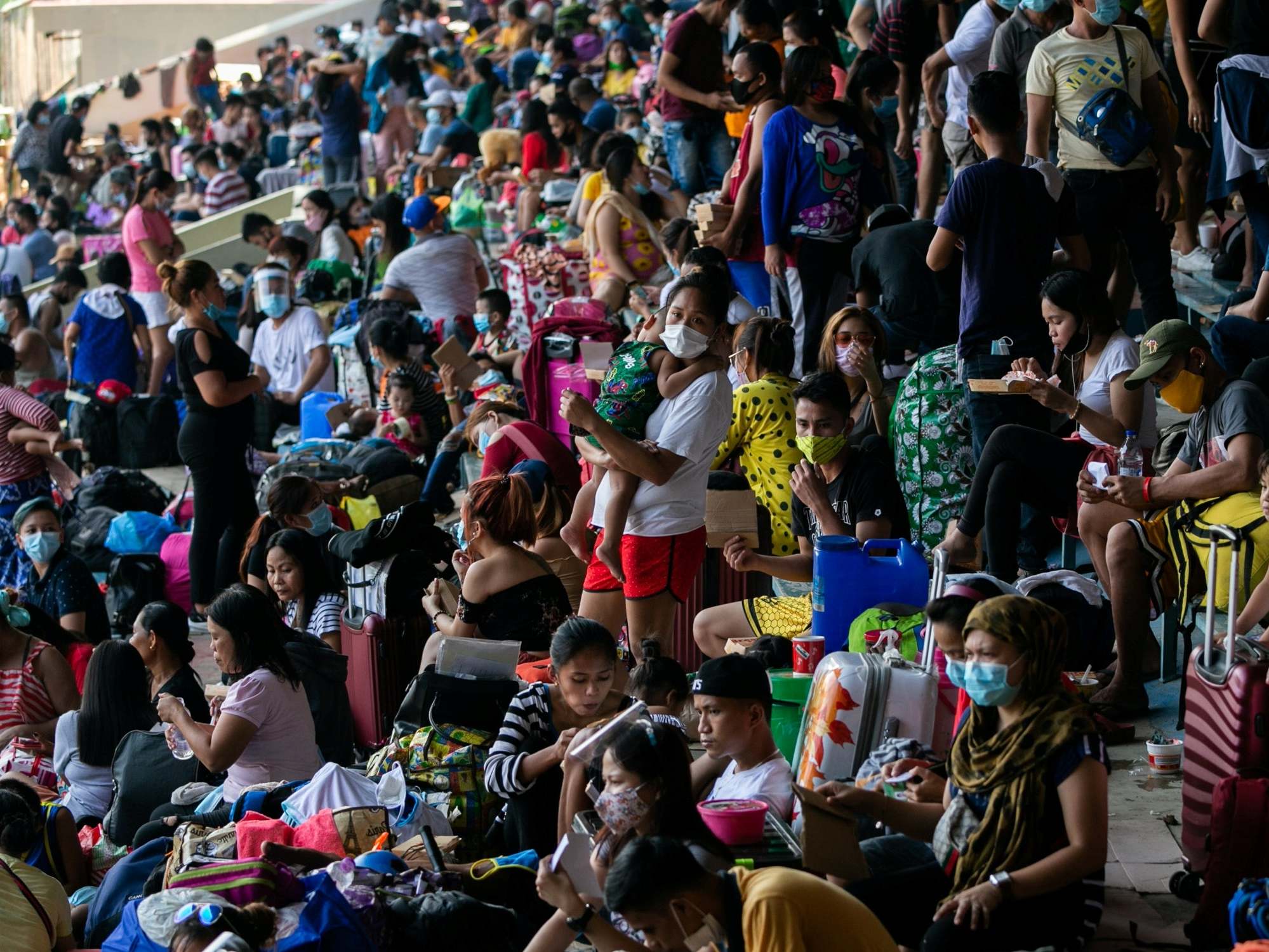Coronavirus: Thousands flood Manila baseball stadium as government transportation system fails
Some 9,500 people will undergo Covid-19 testing, official says

Your support helps us to tell the story
From reproductive rights to climate change to Big Tech, The Independent is on the ground when the story is developing. Whether it's investigating the financials of Elon Musk's pro-Trump PAC or producing our latest documentary, 'The A Word', which shines a light on the American women fighting for reproductive rights, we know how important it is to parse out the facts from the messaging.
At such a critical moment in US history, we need reporters on the ground. Your donation allows us to keep sending journalists to speak to both sides of the story.
The Independent is trusted by Americans across the entire political spectrum. And unlike many other quality news outlets, we choose not to lock Americans out of our reporting and analysis with paywalls. We believe quality journalism should be available to everyone, paid for by those who can afford it.
Your support makes all the difference.Thousands of Filipinos were crammed into a baseball stadium in Manila on Saturday, breaking social distancing rules despite coronavirus risks, after people wanting to return to their home provinces flooded a government transportation programme.
Officials had reserved the stadium as a place to test people before transporting them back to their home provinces under a programme to help people who had lost their jobs in the capital return to their families elsewhere.
Officials had planned for 7,500 people to arrive at the stadium from Friday, but were caught out when another 2,000 people who were not yet scheduled to travel headed there anyway.
“Because of the overflowing number of people, we can no longer control (the situation) and the relevance of social distancing had been diminished,” assistant secretary Joseph Encabo, who is overseeing the government's transportation assistance programme, told Reuters by phone.
Police were deployed to urge social distancing, but people, including the elderly, children and pregnant women, were seen in close contact with each other. Some were not wearing masks.
Many of those at the stadium had got stuck in the capital when it imposed one of the strictest and longest lockdowns in mid-March in response to the coronavirus pandemic.
That was eased at the start of June, allowing businesses to reopen in a limited capacity, but schools remain shut and mass gatherings are banned. People must wear masks in public and observe one-metre social distancing, while children and the elderly are urged to stay at home.
Coronavirus cases have more than quadrupled since restrictions were eased to 78,412, with more than half of those in the capital and surrounding areas.
Among those at the stadium was Fred Marick Ukol, 40, who became stuck in Manila after his flight to Australia, where he had found work as a welder, was cancelled.
“We don't have work and now all of our savings have dried up because of the lockdown,” Mr Ukol said, referring to himself and fellow overseas Filipino workers.
Mr Encabo said everybody at the stadium would undergo rapid testing for Covid-19 and must be cleared before being allowed to board the buses, sea vessels, and trains the government has prepared.
Reuters
Join our commenting forum
Join thought-provoking conversations, follow other Independent readers and see their replies
Comments